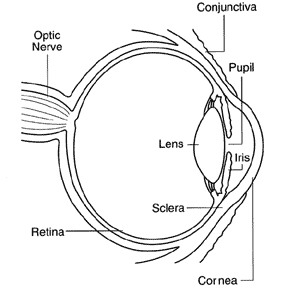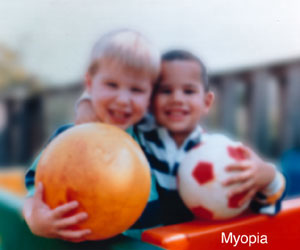Dry Eyes & in Rochester Hills and Troy, MI
At Oakland Eye Clinic we are pleased to offer you a range of treatment options if you suffer from persistent dry eye and fatigue.
Dry eye is a condition in which the eyes do not properly produce tears to keep them lubricated and/or the tears evaporate too quickly, leaving you with dry, irritated eyes and causing a range of problems, including eye fatigue.
If you suffer from dry eye, you may experience a lot of discomforts, including frequent irritation, pain, inflammation as well as blurry vision. However, your suffering is optional.
So please call us today so that we can help you with effective dry eye treatments. To learn more about dry eye and your treatment options, please read the paragraphs below. We help dry eye patients in Rochester Hills, Detroit, and throughout Michigan. Our Michigan eye doctor is also a superb LASIK provider.
What Are Dry Eyes?
Dry eye is simply a lack of lubrication in the eyes. The eyes are comprised of various essential parts, including specific glands that are designed to produce tears and keep the eyes moist.
When the glands are affected, tears are not being produced and patients experience dry eye symptoms. Some patients may produce enough tears but they evaporate too quickly resulting in dry eye discomfort.
There are several dry eye conditions and types. Dry eye is also often referred to as evaporative tear deficiency, dysfunctional tear syndrome, and lacrimal keratoconjunctivitis among others.
Dry eye can make it very hard to perform various activities and even work on a computer. Severe dry eye can also lead to irritation, inflammation, and corneal scarring all of which can be detrimental to your eye health and vision.
The process of eye tear production is very complex. In fact, eye tears are made by several glands and comprised of these essential components:
a) The outer, oily part produced by the meibomian glands
b) The middle watery part produced by the lacrimal glands
c) Inner, mucous layer produced by the goblet cells located within the white part of the eye, covering the inner surface of the eyelids.
d) Tears are also comprised of growth factors, vitamins, and other nourishing elements that ensure proper eye function and protect the eyes from inflammation, environmental factors, and various infections.
As previously mentioned, there are several types of dry eye. The more common include:
1. Aqueous tear-deficiency dry eye disorder: This type of dry eye occurs when the lacrimal glands responsible for tear production fail to produce enough of the water substance to lubricate the eyes.
2. Evaporative dry eye: This type of dry eye is often a result of the inflammation of the meibomian glands, which are responsible for producing the oily part of tears that help maintain lubrication long enough.
Any eye disease or irregularity that hinders the process of proper production of tears and lubrication can lead to persistent or chronic dry eye.
Dry Eye Symptoms
Dry eye symptoms are very obvious and in general, you will notice them right away. Depending on the severity of your dry eye condition, you may experience any of the following:
- Burning and redness
- Eye fatigue
- A sandy dry feeling as if you have something in your eye
- Mild to moderate pain
- Frequent blurred vision
- Inability to cry
- Uncomfortable contact lenses
- Irritation when reading or working on the computer
- Heaviness of eyelids
- A stringy discharge from the eyes
If you experience any of these symptoms and they occur more than a few times, please call us immediately to schedule a dry eye evaluation.
Dry Eye Causes
There are countless reasons people develop dry eye. In general, dry eye is often associated with:
- Inflammation of any of the glands responsible for tear production
- Any medical conditions or medications that alter the way in which the tears are produced
- Any increase in the size of the surface of the eyes, such as thyroid disease
- Cosmetic surgery performed on or around the eyes
- In rare cases, dry eye can also be caused by laser vision correction aka LASIK
Dry Eye Treatment Options and Prognosis
The first step in effectively treating dry eye is to determine the underlying cause and treat the cause. If gland dysfunction is responsible for dry eye, then this is what we will address.
However, if your dry eye is caused by side effects of cosmetic surgery and/or an existing medical condition such as thyroid and the like, then we will work together to manage your dry eye so that you can function without any prolonged discomfort.
The most common treatments we perform for dry eye may include one or a combination of the following:
Medication: a drug called Cyclosporine in the forms of eye drops is the only dry eye medication currently available. It works very well by increasing tear production, decreasing the risk of damage as a result of dry eye, and delivering some relief associated with dry eye discomfort.
If you are already experiencing severe inflammation from dry eye, then a short-term corticosteroid eye drops may help.
Insertion of Lacrimal Plugs: These plugs are made of silicone and you will not feel them. They are usually inserted easily and work to prevent eye tears from draining into the nose and thereby providing better moisture for the eyes.
Lacrimal plugs also called punctal plugs, are usually temporary, but can be used as a permanent measure if your dry eye is chronic. A surgical procedure to accomplish this effect is also an option for some patients.
Dry Eye Management: If you suffer from chronic dry eye, this means that your condition is irreversible. However, we can provide a range of treatments to help manage the condition, including the procedures mentioned above.
In addition, you should talk to your primary care provider and ask about nutrition for dry eye. Studies have shown that patients with persistent dry eye can decrease irritation by consuming omega 3 fatty acids, vitamins, and a variety of supplements meant to lubricate the body and glands.
You may also find immediate dry eye relief with over-the-counter artificial tears and lubricating eye drops. A humidifier in your home may also help, as well as protection from the sun and limited contact lens wear.
Your Dry Eye Evaluation
If you suffer from dry eye, please call us today to schedule your evaluation appointment. When you come in, Dr. Hakimzadeh will determine the cause of your dry eye and provide you with the best and most effective treatment option. We are here to help and ensure your optimal eye health. Please call us today.
Thank You for Choosing Oakland Eye Clinic









